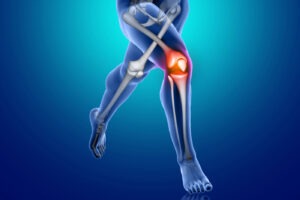Chronic pain and mental health are deeply intertwined, creating a complex relationship that can significantly impact a person’s quality of life. Understanding this connection is crucial for both effective pain management and mental well-being.

1. Chronic Pain Leading to Mental Health Issues
Living with chronic pain can be exhausting and overwhelming, often leading to mental health issues like depression, anxiety, and stress. The constant discomfort and limitations on daily activities can contribute to feelings of hopelessness and isolation.

2. Mental Health Affecting Pain Perception
Conversely, mental health conditions can exacerbate the experience of pain. Anxiety and depression, for instance, can heighten the brain’s perception of pain, making it feel more intense. This can create a vicious cycle where pain worsens mental health, which in turn amplifies the pain.

How Mental Health Influences Pain Management
- Cognitive-Behavioral Therapy (CBT)
- CBT is a common psychological treatment that helps patients manage chronic pain by changing their thought patterns and behaviors related to pain. By addressing negative thought patterns, CBT can reduce the emotional distress associated with pain, leading to better pain management outcomes.
2. Mind-Body Techniques
- Practices such as mindfulness meditation, relaxation techniques, and yoga can help manage both pain and mental health symptoms. These techniques promote relaxation and reduce stress, which can alleviate the intensity of chronic pain.
3. Importance of Addressing Both Pain and Mental Health
- Treating chronic pain without addressing underlying mental health issues can lead to incomplete or temporary relief. A holistic approach that includes mental health care is essential for long-term pain management success.

Breaking the Pain-Mental Health Cycle
- Integrated Care Approaches
- Integrating mental health services with pain management treatments can provide more comprehensive care. This approach ensures that both the physical and psychological aspects of chronic pain are addressed simultaneously.
2. Support Systems
- Building a strong support system of healthcare providers, family, and friends is vital for managing the dual burden of chronic pain and mental health challenges. Emotional support can help reduce the feelings of isolation and improve coping strategies.
3. Patient Empowerment
- Educating patients about the connection between mental health and pain can empower them to take an active role in their treatment. Understanding this link can motivate patients to engage in mental health therapies that ultimately improve their pain outcomes.

Conclusion
The connection between mental health and chronic pain is undeniable and complex, requiring a comprehensive and integrated approach to care. By addressing both the physical and psychological aspects of chronic pain, patients can achieve better outcomes and an improved quality of life. If you or a loved one is struggling with chronic pain and its impact on mental health, seeking help from a multidisciplinary team that includes mental health professionals can make a significant difference.
For more information on managing chronic pain and mental health, or to explore treatment options, visit ALGOS, where our compassionate team is committed to providing holistic and personalized care.





